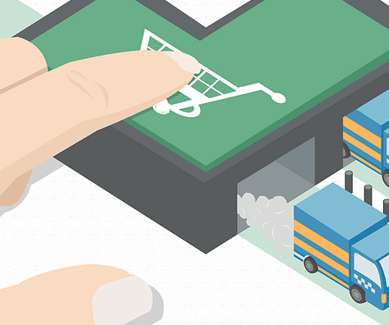What retailers can learn from the 2021 holiday shopping season
Kibo
FEBRUARY 28, 2022
This gave the retail behemoth an advantage over (most) eCommerce-only retailers since their stores doubled as fulfillment centers. In fact, the number of online orders fulfilled from Walmart’s stores grew by 170% year over year in fiscal 2022, on top of a 500% gain from 2020 to 2021. Balance your inventory across channels.












Let's personalize your content